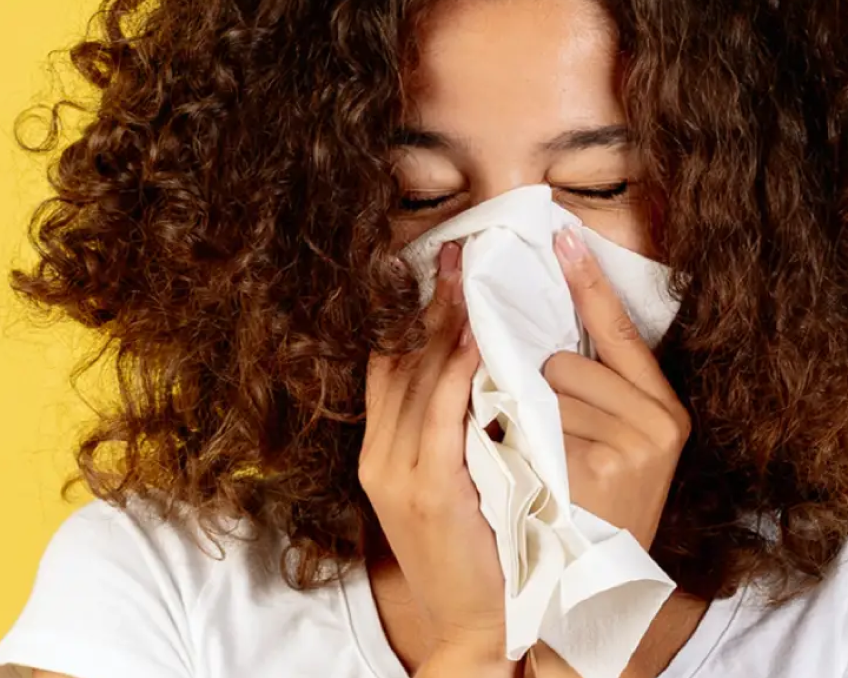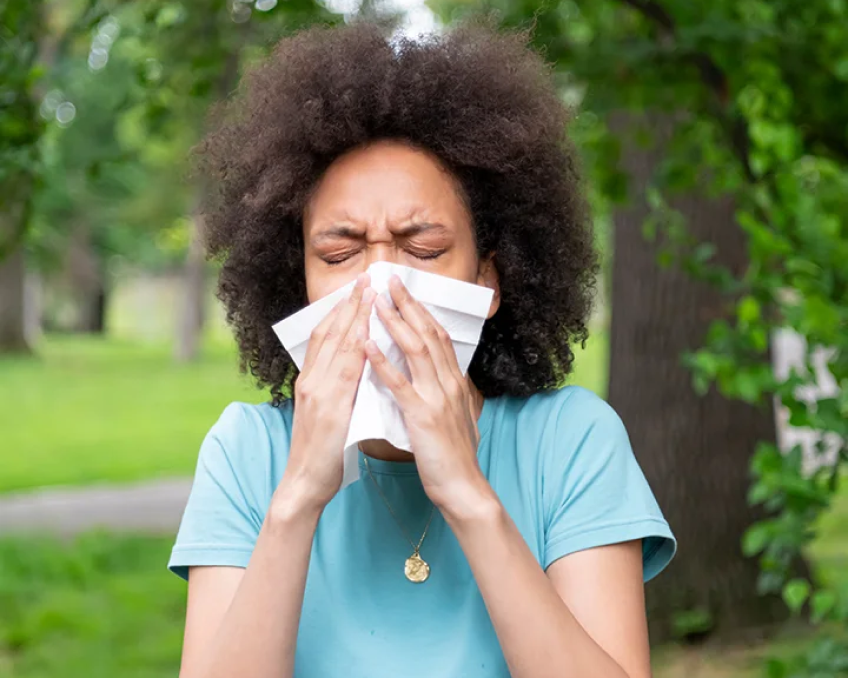Seasonal Allergies
When the pollen count increases or the dust just won’t settle, we’re here to help!
From hay fever to a rash and everything in between, our providers can effectively diagnose and treat your seasonal allergies with treatments ranging from simple antihistamines and decongestants to more powerful medication.
What are allergies?
Allergies occur when your immune system overreacts to a trigger, called an allergen, that it detects to be harmful. A wide variety of objects can be considered allergens, including pollen, mold, pet dander, foods or common skin irritants.
While allergies and allergic reactions can be triggered any time, seasonal allergies and their symptoms occur at certain times of year, typically when plants like trees and grasses release pollen into the air.
Symptoms of Seasonal Allergies
The expert staff at WellNow can help address the most common allergy symptoms, including:
Sneezing or coughing
As your body responds to allergens with histamines, you may sneeze more than you are used to. Other symptoms of allergies may cause your airways to be inflamed, causing you to cough.
Rash
When the body is overwhelmed by allergens, it releases histamines which can cause inflammation in your skin which results in a rash.
Red or itchy eyes
Other reactions your body may have are red, watery eyes or itchiness around your eyes.
Congestion and pressure
You are very likely to experience congestion in your nasal passage and pressure in your sinuses when experiencing allergies.
Headache
Coinciding with the congestion and pressure you may feel, headaches are also a common symptom of allergies due to inflammation and swelling in sinus or nasal passages.
Runny nose
Similar to red, watery eyes, allergies may also lead to your nose to drain and run.
Allergy Treatments
While there is no cure for allergies, it is possible to relieve and reduce their symptoms.
In some cases, certain therapies may be able to reduce the severity of allergic reactions in the future.
Oral medication
To ease your symptoms, over-the-counter antihistamines and decongestants may be used.
Topical medication
If you are experiencing an allergic reaction that includes a rash, a medical provider may recommend a topical medication to treat it.
Referral to allergist
When allergy symptoms are severe, a medical provider may refer you to a specialist to determine specific triggers and causes of allergic reactions.
Meet with a Medical Provider Today
Reserve your spot online, walk in to a location near you or access our 24/7 virtual care.
Related Health and Wellness Resources

Tips for Managing Your Spring Allergies
Spring is in the air — and so is pollen. Here’s how to prevent allergies from making the new season uncomfortable.

Telling the Difference between COVID-19, Colds and Allergies
Learn the different symptoms, risks, and prevention options between cold, flu, and COVID-19 viruses.

Indoor & Outdoor Allergy Symptoms
As the seasons change, we're all more susceptible to both indoor and outdoor allergies. Do you know the symptoms?

